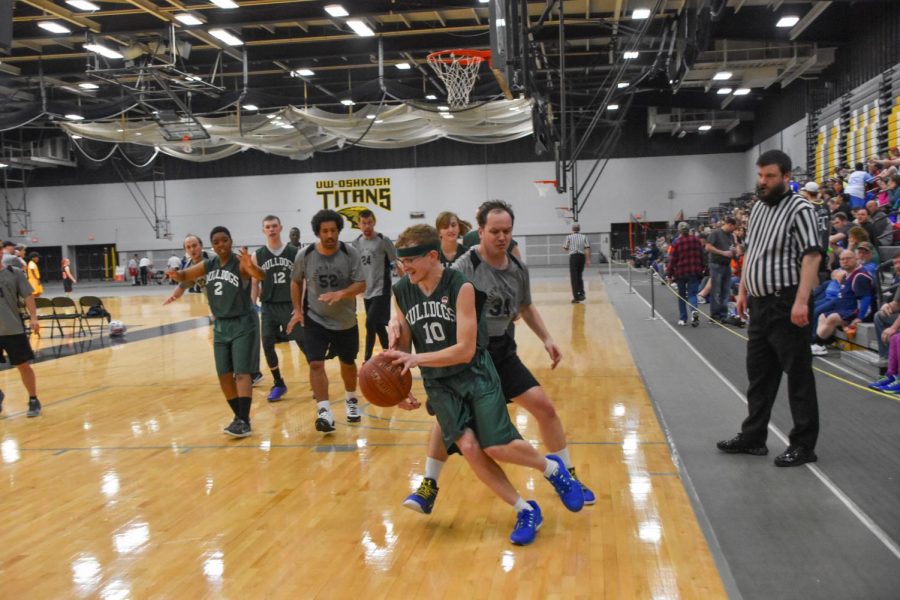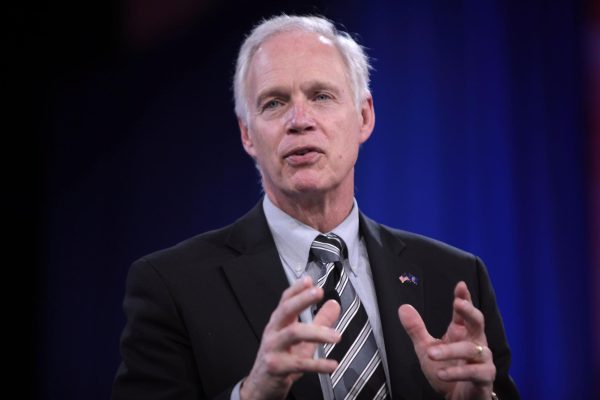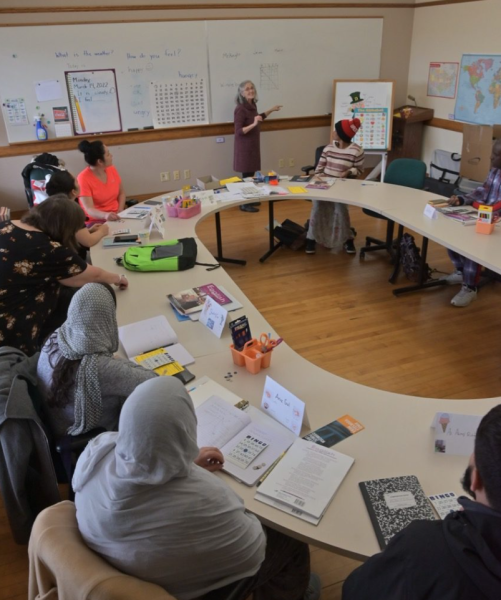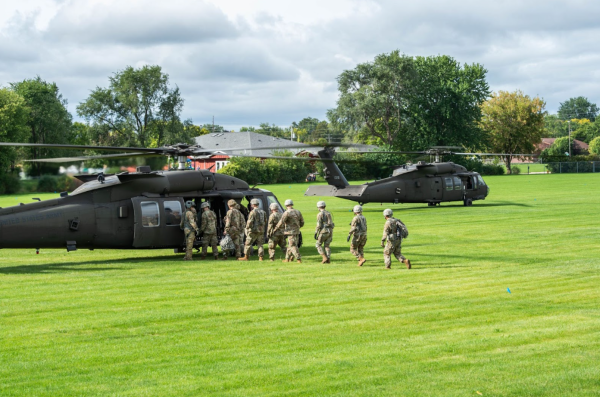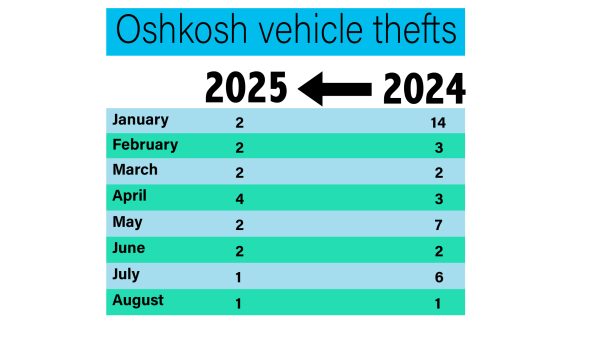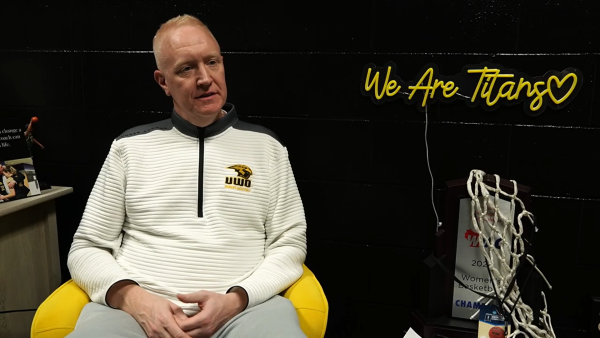Special Olympics returns to UWO
The Walworth Bulldogs compete against Hopp Alumni at Kolf Sports Center.
UW Oshkosh hosted over 1,200 participants, staff and audience members on April 6 and 7 for the annual Special Olympics state basketball tournament.
Out of 220 teams from around the state, 56 were chosen to participate over the weekend.
Region 4 Fox athletic director Jody LaPlante said that the Special Olympics’ push is “Inclusion Revolution”: a goal of inspiring people to accept, include and value those with intellectual disabilities (ID) in all aspects of life.
“Unified sports and anything more… if we can get acceptance through the community, that’s the goal,” LaPlante said.
Senior director of field services Mark Wolfgram said the Special Olympics is not only about the competition, but also raising awareness for those with ID and how they are just like anybody else.
“It’s the determination and the ability to use facilities out in the community, the inclusion aspect of it,” Wolfgram said.
LaPlante also said the participants are just as compassionate and competitive as anybody else.
“They know about winning; they know about losing,” LaPlante said. “They take it just as hard or just as fun as we do. Not many people think about that though.”
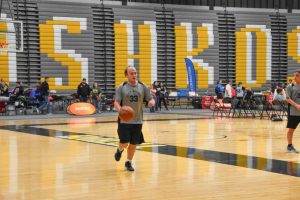
A Hopp Alumni player goes to pass the ball to his teammate.
Athlete Kyle Grierson from New Berlin has been participating in the Special Olympics for 10 years and said he enjoys the thought that events such as this raise awareness to the community.
“It gets people to realize what Special Olympics actually is and what goes on,” Grierson said. “It gets people to understand why it’s around.”
The Special Olympics Wisconsin website states the Healthy Athletes program is the largest provider of health services for those with ID.
“Healthy Athletes not only provides health services and education to Special Olympics athletes, it also trains healthcare professionals and students who gain increased knowledge of and compassion for people with intellectual disabilities,” the website said.
UW Oshkosh conference coordinator Laurie Hughes said that Healthy Athletes is aimed to help the athletes make sure they are “on par” with their own physical health.
“Some of them don’t have opportunities as far as doctors, all that kind of stuff,” Hughes said. “All kinds of professionals — doctors, dentists, opticians — actually come in and do these screenings.”
Healthy Athletes provides four services at the tournament, which include Opening Eyes, Healthy Hearing, Fun Fitness and Special Smiles.
“When athletes are in their best physical health they train and compete at their highest level,” the website said.
Opening Eyes “performs vision evaluations and dispenses glasses to those athletes who are in need.” Those who did not need a prescription could get a free designer pair of sunglasses.
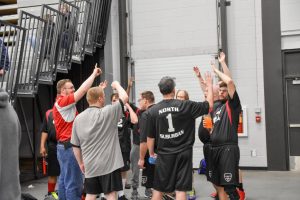
North Suburban players and coaches high-five in celebration of a well-played game.
According to the website, Healthy Hearing conducts hearing screenings for the athletes.
“Reduced hearing can have a significant negative impact on an athlete’s ability to respond to directions in training, as well as understand other verbal information from coaches,” the website said.
Fun Fitness provides assessments of flexibility, functional strength and balance of the athletes by physical therapists and student volunteers.
“After the assessment, athletes will receive a take-home booklet personalized to them based on the results,” the website said.
Special Smiles performs dental screenings to athletes to inform them on the importance of oral health.
“At the screening, dentists and hygienists identify oral problems, while athletes are provided with hygiene education and a ‘goodie bag’ with dental care items,” the website said.
Wolfgram said that having these screenings offered is great, but the other focus is the community bond that the Special Olympics provide.
“They call this home,” Wolfgram said. “They’re here because of the presence and how they’re treated. The camaraderie with the universities and the student body and everyone else who comes to see it. That connection, during the last 40 years — it’s not only critical for staff, it’s important. It’s family.”


